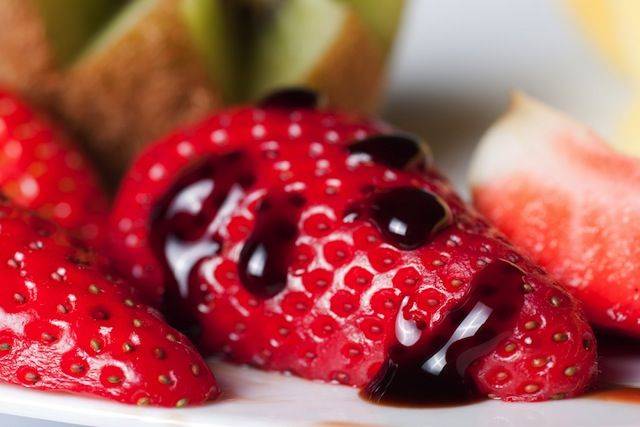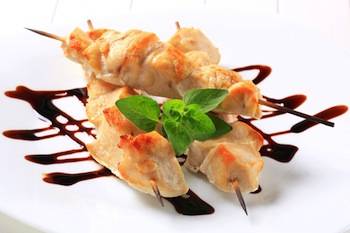Do as the Romans Do: Drizzle some Vincotto on your Food
Italy always has some new and exciting culinary surprises... but what is special about this one is that it is not really that new... it has been around for ages... the fact is it is not sold in any grocery store, you may only find it in specialty shops and markets or online. Vincotto, literally “cooked wine,” is really something unique.
If you ask any Italian chef what Vincotto is, they will answer that it is an elixir, a sweet and velvety concoction similar to balsamic vinegar with the subtle overtones of spices, grapes and plums.
Its history definitely goes back in time: the Romans used to cook grape must to produce wines that, because of their relatively high alcohol levels, could be aged at great length. It was with the same objective in mind that they pressed partly dried grapes and fermented the juice to produce raisin wines.
They called them defructum passum or caroleum, depending on their manner of production and degree of reduction. It is not certain that they made vinegars with the same process, but it appears highly probable that they did. It is from this ancient tradition that Vincotto was born. As a point of reference, it is often stated that Vincotto is similar to authentic balsamic vinegar, although it is not mass produced the way balsamic vinegar is, but the chefs confirm that there is no real comparison.
Vincotto is made from two variety of grapes, Negroamaro and Malvasia Nera. The grapes are left to dry on the vine or over wooden frames, then the must is gently boiled for more than 24 hours until it reduces to a fifth of its initial volume. This syrup is then poured into small oak barrels along with the mother vinegar or starter. In these barrels it is aged for four years, thus allowing it to release all its aromas and flavors. This is a natural product without any alcohol, colorants or preservatives.
Used as a condiment, just a few drops can be drizzled over roasted meats, salads, vegetables and even desserts. It is great in appetizers, soups, pasta sauces, pizza toppings, and anything tasty. It blends nicely with bacon and with potatoes for a unique potato salad and added to yogurt, fruit and chopped almonds it makes an appealing dessert.
“Vincotto is a versatile ingredient that really does have a life beyond dressing leaves of greens. I use it in both sweet and savory dishes,” Chef Luca, an Italian private chef hailing from Sardinia and working in New York (www.cheflucanyc.com) said, “it is delicious with fruit salad and a scoop of vanilla ice cream and it also adds up a note of flavor to a nice cup of zabaione cream. I serve it in a cheese platter, together with some honey and walnuts, while my clients, enjoy it with Caprese salad and with grilled steak. The possibilities are endless.”
Vincotto is sweet and it can be transformed into vinegars of Vincotto by blending it with vinegar from the same grapes and then letting it age for a minimum of 6 months. The result is a product that is "legato" i.e. the sweet and vinegar properties bind and are transformed into a smooth and rich vinegar. Some of these vinegars are further blended with fruits such as figs, raspberries, lemons, and oranges.
Italy's major producer of Vincotto is the Calogiuri family, from the province of Lecce. They have been producing it since 1825, using a secret traditional recipe. Back then, Leonardo Calogiuri opened a small business for the sale of extra-virgin olive oil and wines and began to use for his own family a particular grape must handed down from his father. It was Vincotto. His tradition has been passed onto six generations until now when this exclusive product is available on the market through the dedicated efforts and innovations of Gianni Calogiuri, member of the latest generation of the Calogiuri family.
The Calogiuri "Originale" Vincotto version from Lizzanello is produced using Negroamaro and Black Malvasia, and is cooked for about fifteen hours, it’s a real rarity that is now available on the American tables. The Calogiuri family also produces Vincotto with figs, Vincotto with hot peppers, Vincotto with lemon and even with raspberries. (www.vincotti.it)







































i-Italy
Facebook
Google+
This work may not be reproduced, in whole or in part, without prior written permission.
Questo lavoro non può essere riprodotto, in tutto o in parte, senza permesso scritto.